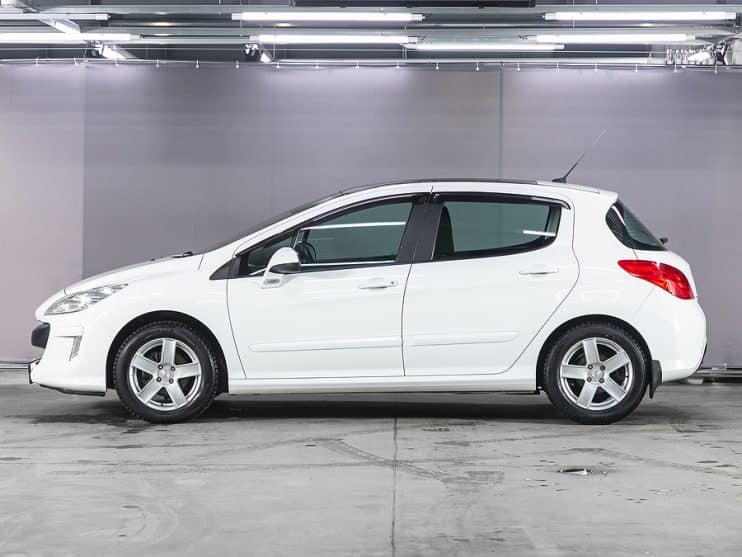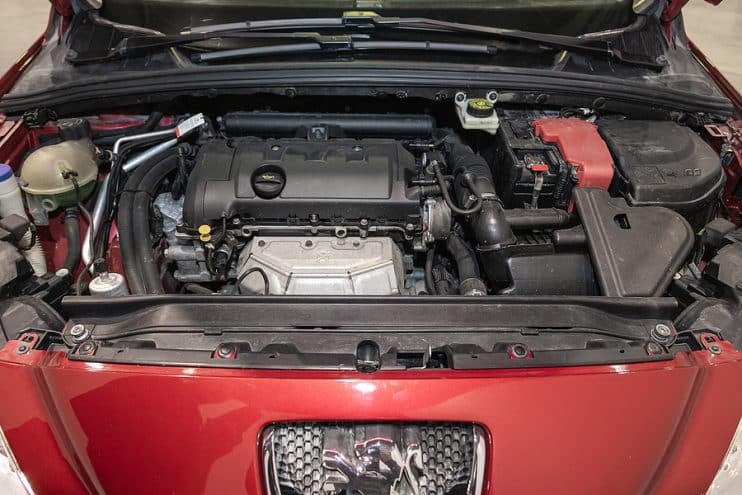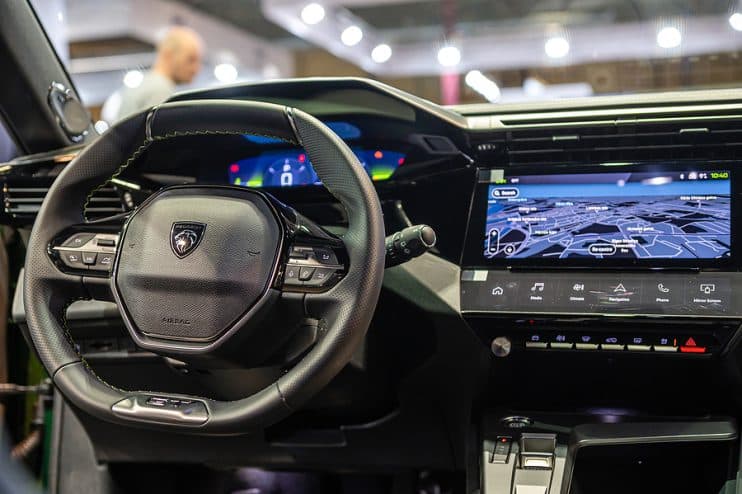
First introduced in 2007, the Peugeot 308 is a compact car that offers a range of body styles, including hatchback, estate, and convertible.
The Peugeot 308 has had its fair share of issues and technical hiccups, which have been well-documented among 308 owners. However, because it’s a mature model, it’s easy to find affordable parts, making it a good choice if you like carrying out repairs yourself.
Here, we take a look at some of the most common problems reported by Peugeot 308 drivers and owners, along with whether we think the 308 is a reliable car to buy.
Table of contents:
- What are the common faults of a Peugeot 308?
- History of the Peugeot 308
- Do Peugeot 308’s hold their value?
- Is the Peugeot 308 a reliable car?
What are the common faults of a Peugeot 308?
While not all Peugeot 308 models will experience any of these issues, here are some of the most common problems reported by drivers and owners:
Turbocharger malfunctions
Some Peugeot 308 owners have encountered an issue where their car emits blue/black smoke from the exhaust, accompanied by a loss of power and acceleration. Some have also reported a whistling sound from the top of the engine.
This problem indicates a malfunctioning turbocharger in the 308, and the best thing to do is replace the old turbocharger with a new or second-hand one. You’ll also want to replace the EGR valve, a small yet crucial component responsible for emission control.
These repairs can be costly, so it’s worth checking out breaker yards and online breaker services for new or used Peugeot 308 parts, as these can be cheaper than dealership prices.

DPF issues
Peugeot 308 diesel models can have issues with the Diesel Particulate Filter (DPF). When the DPF gets clogged with too much soot, it can cause reduced exhaust flow and engine performance.
Regeneration is usually necessary to burn off the trapped soot, but if the blockage is severe, you might need professional help or a replacement DPF.
Your driving habits and conditions can affect the DPF, so keeping up with regular maintenance and following the recommended service intervals is important.
Handbrake problems
Common reported problems with the Peugeot 308 handbrake include sticking or jamming, where the handbrake gets stuck in the engaged position, making it difficult or impossible to release. Rust, worn cables, or faulty mechanisms can cause this.
Some owners have experienced a lack of holding power when the handbrake is engaged. This can lead to the vehicle rolling or moving when parked on inclines.
In some cases, the handbrake warning light on the dashboard may illuminate, indicating a potential problem with the handbrake system. This could be due to issues with the cables, sensors, or other components.
Oil leaks and oil consumption issues
Some Peugeot 308 owners have reported problems with oil leaks, usually flagged by puddles or stains beneath their vehicles. Damaged gaskets, seals, or oil pan issues can cause these leaks.
Owners have also noticed higher-than-usual oil consumption in their Peugeot 308, caused by worn piston rings, valve stem seals or engine issues.

Infotainment system and touchscreen malfunctions
Peugeot 308 owners have experienced problems with the model’s touchscreen, such as unresponsiveness, freezing, or unusual or erratic behaviour. They report issues with navigation, connectivity devices and audio controls, with many having to reboot completely.
The infotainment software provided with the 308 can also run into problems such as error messages or system glitches. Be prepared for a software update or patch to maintain your infotainment system’s smooth operation and stability.
Connectivity issues, such as Bluetooth pairing problems or issues connecting smartphones or other devices to the infotainment system, have also been reported by some Peugeot 308 owners.
Suspension issues
Several owners have reported unusual noises, such as squeaking, from the suspension components. Others notice rattling from the front suspension of Peugeot 308s.
Causes of this issue include premature wear and tear of components such as springs, ball joints and control arms, resulting in an uncomfortable and bumpy ride for some owners.
Transmission problems
Some Peugeot 308 owners have had issues with the transmission. They experienced problems with gear shifting, like having trouble getting into certain gears, experiencing rough shifting, or slipping gears. These problems can affect how the car performs and how it feels to drive.
Sometimes, the transmission warning light on the dashboard may come on, indicating a possible issue with the transmission system. This can be caused by factors such as sensors not working correctly or internal transmission problems.
In some cases, there have been reports of the transmission failing prematurely. This means the transmission stops working altogether, and it can be expensive to fix, sometimes even needing a replacement gearbox.
Petrol engine timing chain issues
Several Peugeot 308 petrol engine owners have experienced problems with the timing chain, such as unusual noises from the engine, like rattling or clattering sounds. These noises are often more noticeable when starting the engine or accelerating.
Another component related to timing chain problems is the timing chain tensioner. If the tensioner fails, it can cause the timing chain to become loose, leading to improper timing and potential damage to the engine.
History of the Peugeot 308
The Peugeot 308 made its grand entrance in 2007, bursting onto the compact car scene as the successor to the Peugeot 307. With its sleek design and contemporary features, it didn’t take long for the 308 to eclipse the 307 in popularity.
Over the years, the Peugeot 308 has seen its fair share of updates and facelifts, keeping pace with market demand. Peugeot has improved engine performance, technology, and design with each new iteration. The 308 is a popular choice for those seeking a versatile compact car with a little French je ne sais pa.

Do Peugeot 308’s hold their value?
The Peugeot 308 holds its value reasonably well compared to older Peugeot models, although some other hatchbacks retain their value better. On average, it keeps around 39% of its original price after three years.
Both petrol and diesel versions have similar value retention, thanks to the improved appeal of the newer PureTech engines. However, it’s important to note that many competitors hold their value better.
The entry-level 1.2-litre models perform the best, retaining 43% of their value over three years.
Is the Peugeot 308 a reliable car?
According to a recent survey by WhatCar?, the Peugeot 308 is reliable. In a comparison among 37 cars in the family car class, the Peugeot 308 ranked 11th, signifying most owners rate it relatively highly for reliability. It also finished 19th out of 75 in the top cars to own from Driver Power in 2017, with a strong score for ride and handling, fuel economy and running costs.
However, reliability can vary based on the specific model year and how well the car has been maintained. To keep your Peugeot 308 reliable, follow regular maintenance and servicing schedules. Taking care of your vehicle will help ensure its continued reliability and performance.









.png)